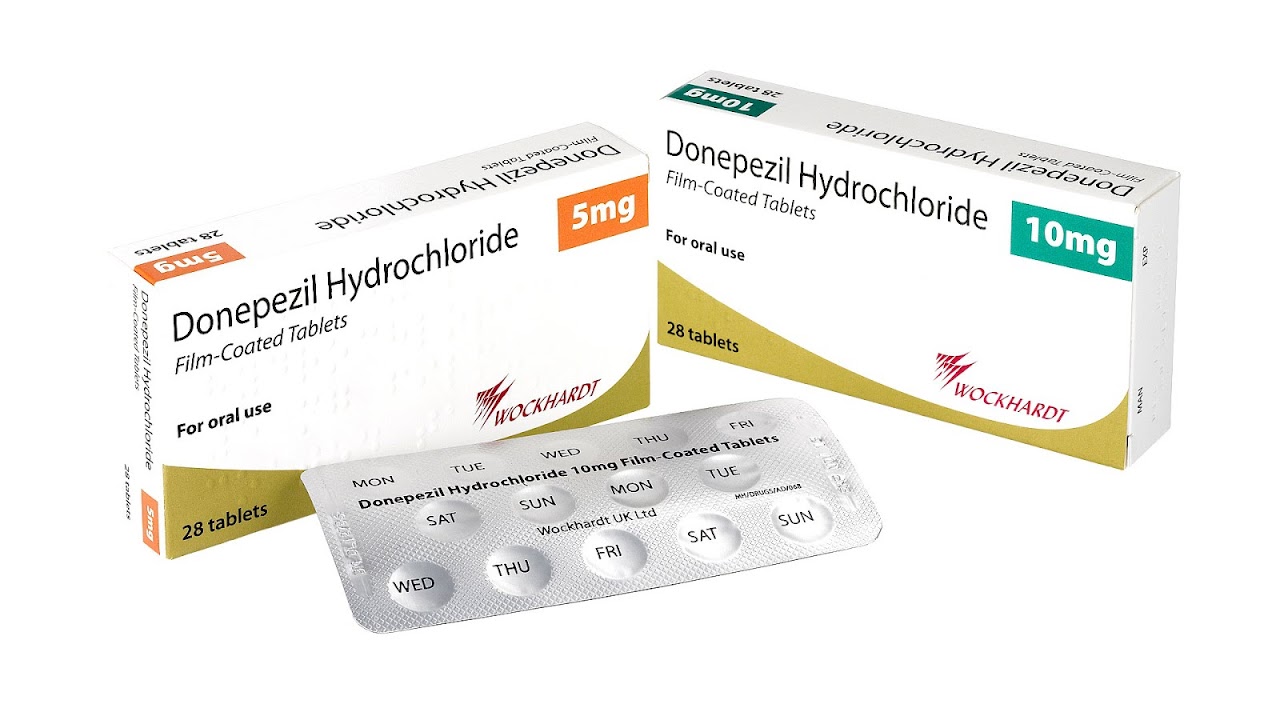
Donepezil, marketed under the trade name Aricept, is a medication used in the palliative treatment of Alzheimer's disease. Donepezil is used to improve cognition and behavior of people with Alzheimer's, but does not slow the progression of or cure the disease.
Common side effects include loss of appetite, gastrointestinal upset, diarrhea, difficulty sleeping, vomiting, or muscle cramping.
It was developed by Eisai and Pfizer and is sold as a generic by multiple suppliers. Donepezil acts as a centrally acting reversible acetylcholinesterase inhibitor.

Maps, Directions, and Place Reviews
Medical uses
Alzheimer's disease
There is no evidence that donepezil or other similar agents alters the course or progression of Alzheimer's disease. 6 to 12-month controlled studies have shown modest benefits in cognition and/or behavior. The UK National Institute for Clinical Excellence (NICE) recommends donepezil as an option in the management of mild to moderate Alzheimer's disease. The person should, however, be reviewed frequently and if there is no significant benefit it should be stopped. In 2006 the U.S. Food and Drug Administration also approved donepezil for treatment of mild, moderate and severe dementia in Alzheimer's disease.
Donepezil Hcl Side Effects Video
Adverse effects
In clinical trials the most common adverse events leading to discontinuation were nausea, diarrhea, and vomiting. Other side effects included difficulty sleeping, muscle cramps and anorexia. Most side effects were observed in patients taking the 23 mg dose compared to 10 mg or lower doses. Side effects improved with continued use.
Precautions
Donepezil should be used with caution in people with heart disease, cardiac conduction disturbances, chronic obstructive pulmonary disease, asthma, severe cardiac arrhythmias and sick sinus syndrome.
People with peptic ulcer disease or taking NSAIDS should use caution because increased risk of gastrointestinal bleeding was noted. Slow heart beat and fainting in people with heart problems were also seen. These symptoms may appear more frequent when initiating treatment or increasing the donepezil dose. Although occurrence of seizures is rare, people who have a predisposition to seizures should be treated with caution.

Mechanism of action
Donepezil binds and reversibly inactivates the cholinesterases, thus inhibiting hydrolysis of acetylcholine. This results in an increased acetylcholine concentrations at cholinergic synapses.
The precise mechanism of action of donepezil in patients with Alzheimer's disease is not fully understood. Certainly Alzheimer's disease involves a substantial loss of the elements of the cholinergic system and it is generally accepted that the symptoms of Alzheimer's disease are related to this cholinergic deficit, particularly in the cerebral cortex and other areas of the brain. It is noted that the hippocampal formation plays an important role in the processes of control of attention, memory and learning. Just the severity of the loss of cholinergic neurons of the central nervous system (CNS) has been found to correlate with the severity of cognitive impairment.
In addition to its actions as an acetylcholinesterase inhibitor, donepezil has been found to act as a potent agonist of the ?1 receptor (Ki = 14.6 nM), and has been shown to produce specific antiamnestic effects in animals mainly via this action.

History
Research leading to the development of donepezil began in 1983 at Eisai, and in 1996, Eisai received approval from the United States Food and Drug Administration (USFDA) for donepezil under the brand Aricept, which it co-marketed with Pfizer. The team at Eisai was led by Hachiro Sugimoto
As of 2011, Aricept was the world's best-selling Alzheimer's disease treatment. The first generic donepezil became available in November 2010 with the USFDA approval of a formulation prepared by Ranbaxy Labs. In April 2011 a second generic formulation, from Wockhardt, received tentative USFDA marketing approval.

Research
Donepezil has been tested (off label) in other cognitive disorders, including Lewy body dementia, and vascular dementia, but it is not currently approved for these indications. Donepezil has also been found to improve sleep apnea in Alzheimer's patients. It also improves gait in patient with mild Alzheimer's Disease.
Donepezil has also been studied in patients with mild cognitive impairment, schizophrenia, attention deficit disorder, post-Coronary artery bypass surgery cognitive impairment, cognitive impairment associated with multiple sclerosis, CADASIL syndrome, and Down syndrome. A three-year National Institutes of Health trial in patients with mild cognitive impairment reported donepezil was superior to placebo in delaying rate of progression to dementia during the initial 18 months of the study, but this was not sustained at 36 months. In a secondary analysis, a subgroup of individuals with the apolipoprotein E4 genotype showed sustained benefits with donepezil throughout the study. At this time, though, donepezil is not indicated for prevention of dementia.
Source of the article : Wikipedia


EmoticonEmoticon